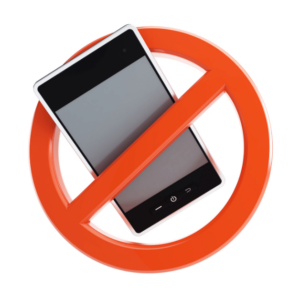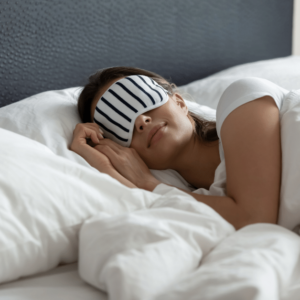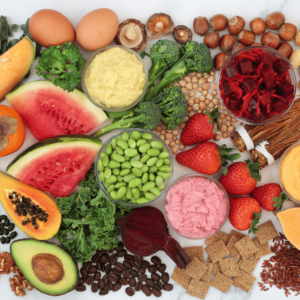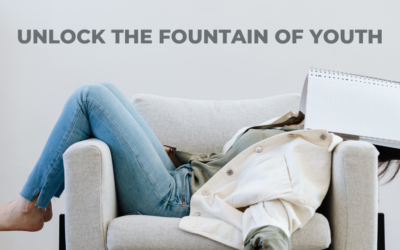Hey there, lovely people! In today’s fast-paced digital world, it’s more important than ever to prioritize our mental health. As we’re constantly bombarded with information and notifications, it can be challenging to find moments of peace and relaxation. That’s why we’ve put together this comprehensive guide on self-care practices and resources to help you maintain your well-being in the digital age. So, grab a cup of tea and let’s dive into these fantastic tips and tricks to help you feel your best!
Digital Detox

It’s no secret that our devices can sometimes be a source of stress and anxiety. That’s why taking a digital detox is a fantastic way to give your mind a break from the constant barrage of information. Consider these strategies for a successful digital detox:
a. Set aside specific times during the day when you’ll disconnect from your devices. Establishing “tech-free” hours can help create a balance between your online and offline lives.
b. Try a full day or weekend without screens. Plan activities that encourage relaxation and connection with others, such as picnics, hikes, or board game nights.
c. Create tech-free zones in your home. For instance, make your bedroom a device-free sanctuary to promote better sleep and relaxation.
d. Set app limits on your phone to manage screen time and encourage healthier habits.
e. Replace screen time with alternative activities that promote well-being, like reading, exercising, or spending time in nature.
You’ll be surprised at how refreshing it can be to unplug and focus on the present moment.
Exercise and Physical Activity

Physical activity is directly linked to mental well-being. Exercise releases feel-good chemicals called endorphins, which help improve mood, reduce stress, and increase energy levels. To incorporate physical activity into your daily routine, consider the following:
a. Find activities you enjoy: Choose exercises that you genuinely enjoy to increase the likelihood of sticking with your routine.
b. Start with small goals: Gradually increase the intensity and duration of your workouts as your fitness level improves to avoid burnout or injury.
c. Mix it up: Vary your workouts to keep things interesting and prevent boredom. Combine cardio, strength training, and flexibility exercises for a well-rounded routine.
d. Work out with a buddy: Having a workout partner can make exercise more enjoyable and help keep you accountable.
e. Take advantage of the outdoors: Enjoy the benefits of fresh air and sunshine by exercising outside when possible, such as going for a walk, run, or bike ride.
f. Utilize online resources: Explore the numerous workout videos, apps, and tutorials available online to find the perfect exercise routine for you.
By making exercise a regular part of your life, you’ll experience improvements in both your physical and mental health.
Sleep Hygiene

A good night’s sleep is essential for maintaining mental well-being. Poor sleep can lead to mood swings, irritability, and difficulty concentrating. To improve your sleep quality, consider these sleep hygiene practices:
a. Establish a regular sleep schedule: Aim to go to bed and wake up at the same time each day, even on weekends, to regulate your body’s internal clock.
b. Create a relaxing bedtime routine: Develop a pre-sleep routine that signals to your body that it’s time to wind down, such as reading, taking a warm bath, or practicing gentle stretches.
c. Limit exposure to screens before bed: The blue light emitted by screens can interfere with your sleep, so try to avoid devices for at least an hour before bedtime.
d. Optimize your sleep environment: Make your bedroom conducive to sleep by investing in a comfortable mattress and pillows, keeping the room cool and dark, and reducing noise levels.
e. Be mindful of your diet and exercise habits: Avoid heavy meals, caffeine, and nicotine close to bedtime, and aim to finish exercising at least a few hours before you plan to sleep.
f. Manage stress and anxiety: Practicing relaxation techniques, such as deep breathing, meditation, or progressive muscle relaxation, can help calm your mind and prepare you for a restful night’s sleep.
By prioritizing sleep hygiene, you’ll set the stage for better mental health and overall well-being.
Mindfulness and Meditation

Mindfulness and meditation practices involve focusing your attention on the present moment and accepting it without judgment. The benefits of mindfulness and meditation are numerous, from reducing stress and anxiety to improving concentration and creativity. Here are some ideas to help you incorporate mindfulness and meditation into your daily routine:
a. Start small: Begin with just a few minutes of mindfulness or meditation each day and gradually increase the time as you become more comfortable.
b. Focus on your breath: Concentrate on the sensation of your breath entering and leaving your body as a way to anchor your attention in the present moment.
c. Practice mindful eating: Savor each bite and focus on the flavors, textures, and smells of your food to bring mindfulness to mealtime.
d. Engage in body scans: Systematically bring your attention to different parts of your body, observing sensations without judgment, to cultivate a greater sense of body awareness.
e. Use guided meditations: Apps like Headspace, Calm, and Insight Timer offer guided meditations, breathing exercises, and mindfulness techniques to help you develop your practice.
By incorporating mindfulness and meditation into your daily routine, you’ll be on your way to a calmer, more centered you in no time!
Journaling and Expressive Writing

Journaling and expressive writing can be powerful tools for self-discovery, emotional processing, and stress reduction. By putting your thoughts and feelings on paper, you can gain clarity, identify patterns, and develop new perspectives. Here are some journaling ideas to get started:
a. Gratitude journaling: Each day, write down three things you’re grateful for to cultivate a positive mindset and appreciation for the good in your life.
b. Stream of consciousness writing: Let your thoughts flow freely onto the page without judgment or editing to release pent-up emotions and gain insight into your subconscious.
c. Reflective journaling: Reflect on your experiences, thoughts, and feelings to gain a deeper understanding of yourself and your emotions.
d. Goal-setting and planning: Use your journal to set goals, track progress, and create action plans for personal growth and self-improvement.
e. Art journaling: Combine writing with visual elements, such as drawing, painting, or collage, to express your emotions and experiences creatively.
f. Prompt-based journaling: Use prompts or questions to guide your writing and explore specific themes, emotions, or experiences.
Experiment with different journaling techniques to find the approach that resonates with you and supports your mental well-being.
Social Connections

Nurturing relationships and maintaining social connections are crucial to our mental well-being. Having a strong support system can help buffer the effects of stress and provide a sense of belonging. Here are some ways to strengthen your social connections:
a. Make time for friends and family: Prioritize spending quality time with loved ones, whether it’s in-person or through video calls, phone calls, or messaging.
b. Join clubs or organizations: Engage in activities that interest you and provide opportunities to connect with like-minded individuals.
c. Volunteer: Giving back to your community can help you feel more connected, develop new friendships, and boost your self-esteem.
d. Attend social events: Make an effort to attend gatherings, parties, or other social events to expand your social circle and nurture existing relationships.
e. Be open to new friendships: Embrace opportunities to meet new people and form connections, whether it’s through work, hobbies, or social activities.
f. Offer support to others: Actively listen, provide encouragement, and be there for friends and family members during challenging times to foster stronger bonds.
By actively nurturing your social connections and support systems, you’ll enhance your mental well-being and build a network of people who care about you.
Time Management

Effective time management is crucial for reducing stress and achieving a healthy work-life balance. Try these techniques for managing time effectively:
a. Set realistic goals: Break down your objectives into achievable steps to avoid feeling overwhelmed.
b. Prioritize tasks: Determine which tasks are most important and tackle them first. This helps ensure that the most critical items are completed even if you run out of time for others.
c. Break projects into smaller steps: Divide large tasks into smaller, manageable parts to make progress more manageable and less daunting.
d. Use time management tools: Calendars, to-do lists, and productivity apps can help keep you organized and focused.
e. Set boundaries: Learn to say no when your schedule is full, and avoid overcommitting to tasks or events.
f. Delegate when possible: Share responsibilities with others to prevent burnout and promote a more balanced workload.
g. Schedule regular breaks and downtime: Incorporating relaxation and leisure activities into your daily routine is crucial for maintaining mental well-being and preventing burnout.
With these techniques, you can take control of your time and feel less overwhelmed.
Nutrition and Diet

The food we eat has a significant impact on our mental health. A balanced diet can help improve mood, boost energy levels, and reduce the risk of mental health issues. Here are some tips for maintaining a balanced diet:
a. Incorporate a variety of fruits and vegetables into your meals: Aim for at least five servings of fruits and vegetables per day to provide essential vitamins, minerals, and antioxidants.
b. Choose whole grains: Opt for whole-grain bread, pasta, and rice to increase your fiber intake and promote better digestion.
c. Include lean proteins: Foods such as fish, poultry, beans, and nuts provide essential amino acids and help support brain function.
d. Don’t forget healthy fats: Foods rich in omega-3 fatty acids, like salmon, walnuts, and flaxseed, can help improve mood and brain function.
e. Stay hydrated: Drinking water throughout the day helps support optimal brain function and overall health.
f. Limit processed foods, sugary snacks, and excessive caffeine: These foods can negatively affect your mental well-being and contribute to mood swings and anxiety.
By making mindful choices about what you eat, you can support your mental health and overall well-being.
Hobbies and Creative Outlets

Engaging in creative activities and hobbies is an excellent way to relax, express yourself, and boost your mental well-being. Here are some ideas for discovering new hobbies and incorporating them into your life:
a. Explore different art forms: Try painting, drawing, photography, or pottery to engage your creative side and express your emotions.
b. Learn a musical instrument: Playing an instrument can be a rewarding and therapeutic way to unwind and build new skills.
c. Participate in DIY projects: Crafting, sewing, or woodworking can be a satisfying way to spend your leisure time while creating something unique and personal.
d. Get involved in community theater: Acting, directing, or working behind the scenes can help you connect with others, build self-confidence, and develop new talents.
e. Take up gardening: Cultivating plants and nurturing their growth can be a calming and therapeutic way to connect with nature.
f. Experiment with cooking or baking: Trying out new recipes and techniques in the kitchen can be a fun and creative way to relieve stress and nourish your body.
Find something you enjoy and make time for it in your schedule. You might just discover a new passion!
Professional Help

Lastly, never be afraid to seek professional help if you’re struggling with your mental health. Therapists, counselors, and psychologists are trained to help you navigate life’s challenges and develop healthy coping strategies. With the rise of teletherapy and online counseling services, it’s easier than ever to access mental health support from the comfort of your own home.
Mental Health Resources
Now that we’ve covered the self-care practices, let’s explore some resources that can further support your mental well-being.
A. Online communities and support groups
Connecting with others who share similar experiences can be incredibly comforting and empowering. Many online communities and support groups are available, catering to a wide range of mental health topics. These platforms provide a safe space for individuals to share their stories, ask questions, and offer support.
B. Mental health apps
In addition to the mindfulness and meditation apps we mentioned earlier, there are many other mental health apps available. These apps can help you track your mood, manage anxiety, and learn coping strategies. Some popular options include Moodpath, Sanvello, and Daylio.
C. Blogs and podcasts on mental health
Blogs and podcasts can be a great source of information, inspiration, and support for mental health. From personal stories to expert interviews, these resources offer valuable insights and tips for maintaining well-being.
D. Teletherapy and online counseling services
As mentioned earlier, teletherapy and online counseling services have made accessing mental health support more convenient and accessible. Platforms like Talkspace, BetterHelp, and Amwell offer professional therapy services via video, phone, or text, allowing you to connect with a therapist from anywhere. Here are some advantages of using these services:
a. Flexibility: Online therapy allows you to schedule appointments at times that work best for you, making it easier to fit sessions into your busy life.
b. Access to a broader range of professionals: Online platforms give you the opportunity to connect with therapists from different locations, allowing you to find the best fit for your needs.
c. Anonymity and privacy: For those who may feel uncomfortable discussing their mental health in person, online therapy provides a more private and anonymous setting.
d. Affordability: Many online therapy platforms offer more affordable options compared to traditional in-person sessions, making mental health support more accessible to a wider range of individuals.
By utilizing these online services, you can prioritize your mental health without sacrificing convenience or comfort.
E. Educational resources for mental health awareness
Expanding your knowledge on mental health can help you better understand and care for yourself and others. Websites like the National Institute of Mental Health (NIMH), MentalHealth.gov, and the World Health Organization (WHO) offer a wealth of information on mental health topics, from symptoms and treatments to prevention and advocacy.
Wrapping It Up!
There you have it, friends! These self-care practices and resources are just the beginning of your journey to prioritizing your mental health in the digital age. Remember, everyone’s journey is unique, so take the time to find what works best for you. And don’t be afraid to reach out for help or support when you need it. Let’s continue to support one another and spread the message that mental health truly matters.
If you have any self-care practices or resources that you’d like to share, please leave a comment below or connect with us on social media. Together, we can create a happier, healthier world!
Disclaimer: The information and tips provided in this article are for informational and educational purposes only and are not intended as a substitute for professional medical or counseling advice. Always consult with a qualified healthcare professional or mental health specialist before making any changes to your self-care routine or seeking treatment for mental health concerns. The author and publisher of this article are not responsible for any adverse effects or outcomes resulting from the application of the information contained herein.



